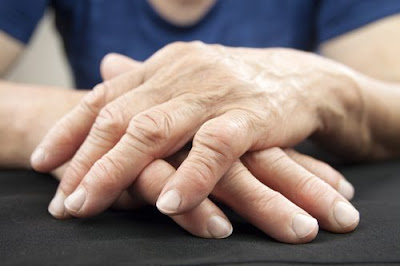Rheumatology refers to arthritis and several other musculoskeletal conditions including inflammatory and non-inflammatory disorders, which can affect people's bones, joints, muscles and soft tissues.
What Problems does a Rheumatologist Treat?
A rheumatologist is a medical specialist who is typically consulted for various conditions related to the musculoskeletal system and autoimmune disorders. These conditions may include:
1. Rheumatoid arthritis: This is a chronic inflammatory disorder that primarily affects the joints, causing pain, stiffness, and swelling. A rheumatologist can help diagnose and manage this condition, often through the use of disease-modifying antirheumatic drugs (DMARDs) and biologic therapies.
2. Psoriatic arthritis: This is a type of arthritis that occurs in some individuals with psoriasis, a skin condition characterized by red, scaly patches. Rheumatologists can provide treatment options to alleviate joint pain and inflammation associated with psoriatic arthritis.
3. Osteoarthritis: This is the most common form of arthritis, typically caused by wear and tear on the joints over time. Rheumatologists can offer treatment plans to manage pain, improve joint function, and slow down the progression of osteoarthritis.
4. Sjogren's syndrome: This is an autoimmune disorder that primarily affects the salivary and tear glands, leading to dry eyes and mouth. Rheumatologists can help manage the symptoms of Sjogren's syndrome, which may include joint pain, fatigue, and dryness.
5. Lupus: Also known as systemic lupus erythematosus (SLE), lupus is a chronic autoimmune disease that can affect multiple organs and systems in the body. Rheumatologists play a crucial role in diagnosing and treating lupus, often using immunosuppressive medications to control inflammation and manage symptoms.
6. Fibromyalgia: This is a chronic condition characterized by widespread musculoskeletal pain, fatigue, and tenderness. Rheumatologists can help diagnose fibromyalgia and develop personalized treatment plans that may include medications, physical therapy, and lifestyle modifications.
7. Gout: Gout is a form of arthritis caused by the buildup of uric acid crystals in the joints, leading to sudden and severe pain, redness, and swelling. Rheumatologists can provide treatment options to manage acute gout attacks and prevent future episodes.
8. Vasculitis: Vasculitis refers to a group of disorders characterized by inflammation of blood vessels. Rheumatologists can diagnose and treat various types of vasculitis, which can affect different organs and systems, including the skin, kidneys, and lungs.
In addition to these conditions, rheumatologists may also be consulted for other autoimmune disorders, such as ankylosing.
Dr Vishad Viswanath's IRIS Centre is a dedicated institute for advanced treatment of all kinds of rheumatic problems. We aim to provide state of the art care in rheumatic diseases with at most sincerity and compassion.
IRIS Centre for Arthritis & Rheumatology
Malayil Centre
Chenthi
Pongumoodu
Thiruvananthapuram, Kerala 695011
Contact Number: +91 471 2412573; +91 8281445394









